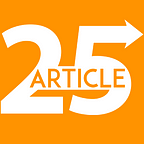Mark Amunga: Knowledge Is Power
The guiding principles of the Global Vote greatly relate to my work and conditions as a community health worker aiming to eliminate or minimize the global health crisis.
I have personally been the victim of poverty and poor health due to poor political and economic platforms. I was unable to see the potential in myself because of those who acquired power and imperialism and their dubious means of maintaining it — something that presses disadvantaged groups lower and lower. My friends and relatives are no exception and have their own bitter share in this tragedy.
There is a lot of inequity in our health systems. This is simply achieved through the pressure exerted by advantaged groups within our political and economic organizations.
People get caught in the poverty cycle and keep on going round and round the cycle, with no one seeing their way out.
Ethnicity is the order of the day. Tribes that are believed to fall lower in power rankings are discriminated against and misappropriated by well-off persons. They lack access to basic requirements and definitely end up as victims of poor health.
Political systems have created the belief that there are some regions where improvement in health systems is impossible.
This is worsened by uneven resource distribution. Handicapped economic systems have set a huge, clear gap between the high class and the low class. There are health facilities that can only the high class can access and afford. The middle and low class miserably miss out on this right.
As if all that is not enough, the decisions to change these structural forces are out of reach for the people most affected by them. The ones with large amounts of money are the ones who can influence and affect policy and leadership changes. They can buy power and oppress the poor as they keep promising a better tomorrow that will never come.
The guiding principles of Article 25’s Global Vote focus on enabling anyone to voice their views and contribute.
The Global Vote considers the opinion of the majority, where people are given chances regardless of their nationality, tribe, gender, sexuality, or whatever factor might be grounds for creating a sociopolitical or economical barrier. This movement may help acquire equity in health systems globally.
Because we can’t acquire power, we have to build power out of what we already have.
Knowledge is power.
We can acquire knowledge. We have the ability to think critically and forge human relationships across organizational, institutional and societal barriers. Knowledge is literally a gradual creator of power because it creates social, political, and economic awareness. Knowledge is power, and knowledge is acquired by driving awareness and the know-how home.
The Global Vote on right to health campaigns will undoubtedly bring out a hidden light if the lower and middle classes are properly considered in the voting process. Setting a principle is one thing: living by it is another cup of tea. I am very optimistic the Global Vote will give rise to fair and just human health rights.
We can revolutionize the health of suffering people across the world.
Working to end oppression is a perspective, a life approach, and a prerogative for anyone who cares for equality and justice. It involves acknowledging and deconstructing the systemic, institutional and personal forms of disempowerment used by certain groups over others.
I first understood anti-oppression simply as recognizing and breaking the social barrier dividing people based on race, class, gender, sexuality, and so on. But going further, it is also a way to enhance social, political and economic equity and justice among people.
For instance, in some countries, power and leadership is believed to belong to certain ethnic groups or persons. And of course, you find power revolving around that group or certain people. A person might suffer to death because he or she is not allowed to access medical attention in health units reserved for a certain race in a certain region.
In some areas, certain social classes are given greater attention because their money speaks for them. The lower class people may get little or no attention because they lack the monetary influence. It’s worth raising an alarm because the oppressors are again the ones with influence to change policies.
The Global Vote will be valuable because most underprivileged people are demanding justice and fairness when it comes to matters concerning health, but no one is listening.
This is the only kind of movement that can shake man-made political and economic structures that oppress people of low status.
This article is written by Mark Amunga, a right to health advocate from Mumias, Kenya. Edited by Sarah Jean Horwitz.
Help us pilot the Global Vote by contributing to our crowdfunding page: http://igg.me/at/globalvote/
